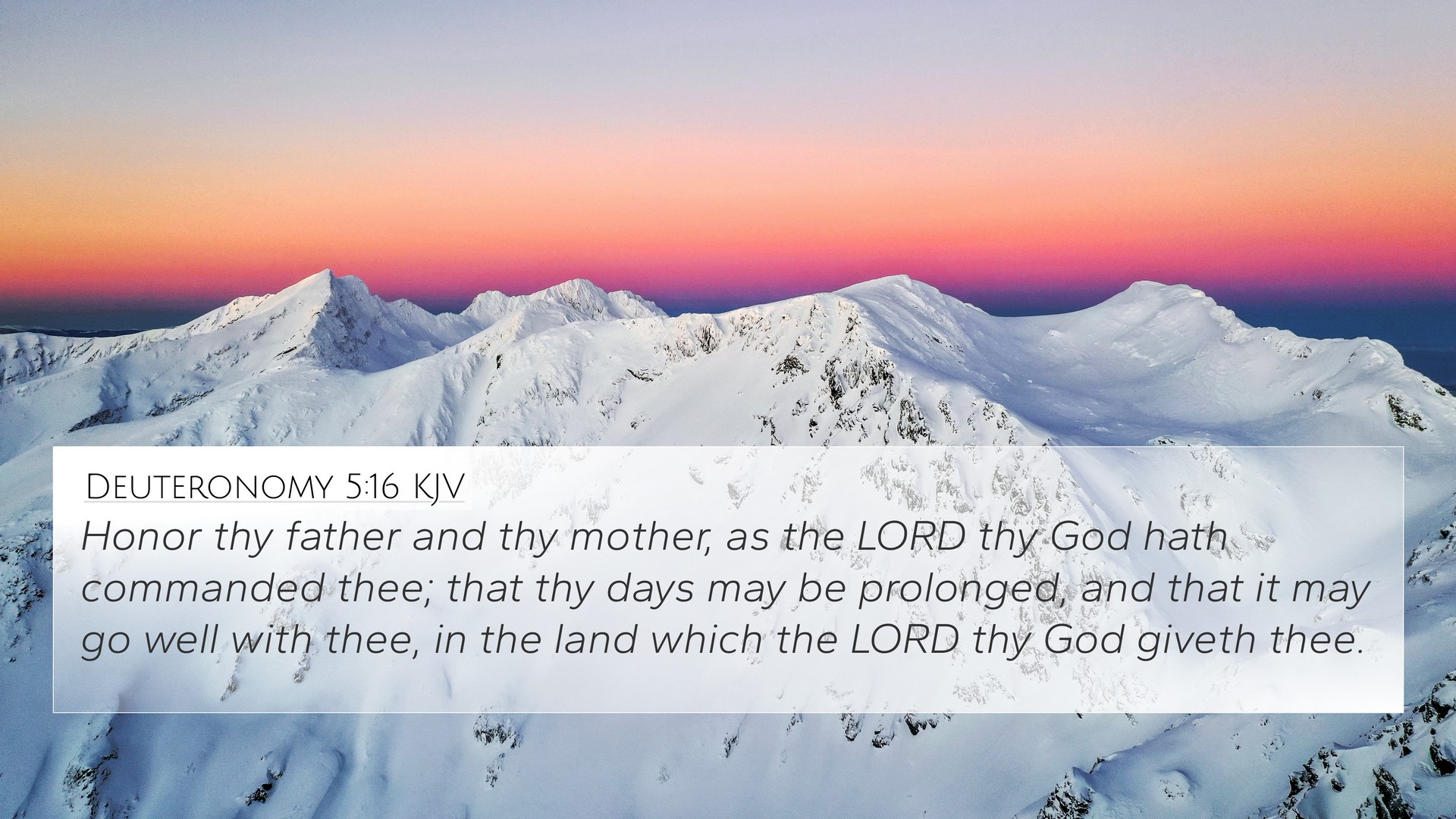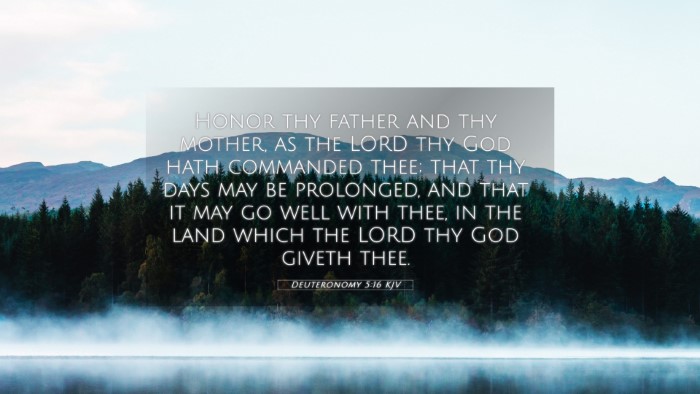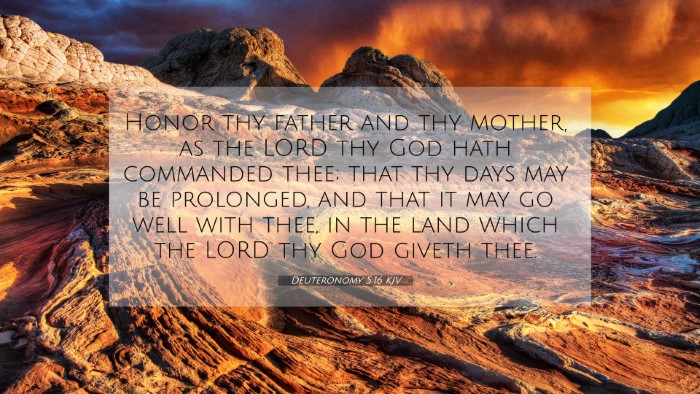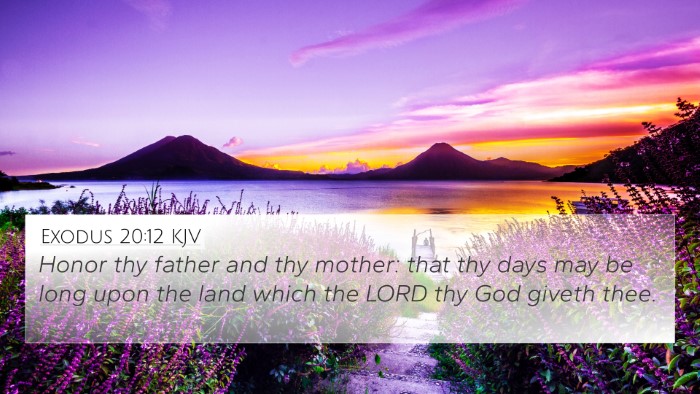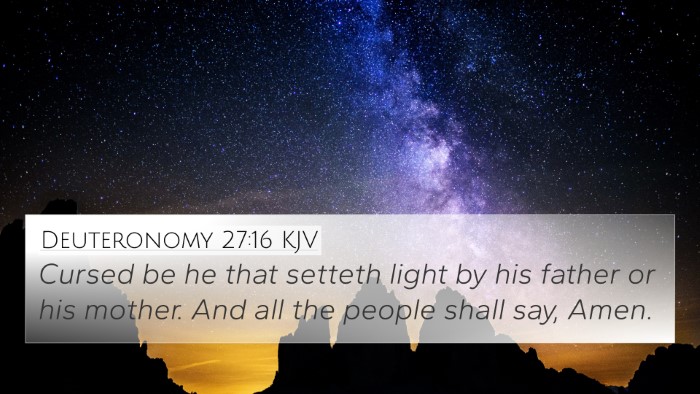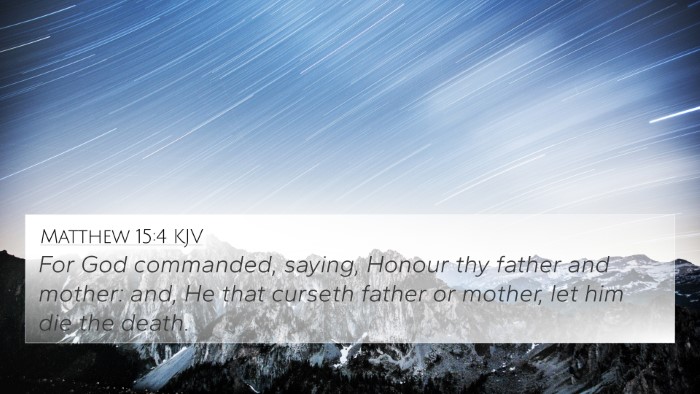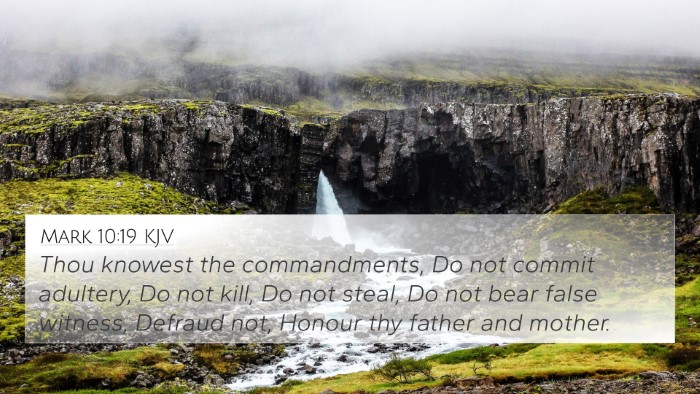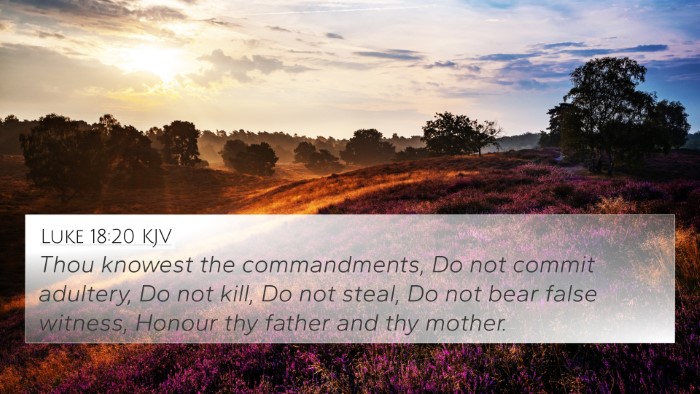Understanding Deuteronomy 5:16
Deuteronomy 5:16 (KJV): "Honour thy father and thy mother, as the Lord thy God hath commanded thee; that thy days may be prolonged, and that it may go well with thee, in the land which the Lord thy God giveth thee."
This verse is part of the Ten Commandments, particularly addressing the importance of family relationships and societal stability through honoring one's parents. Public domain commentaries collectively emphasize several key themes surrounding this commandment.
Key Insights from Commentaries
-
Matthew Henry's Commentary:
Henry stresses the significance of this command as foundational to social order. Honoring parents is depicted not just as a duty but as a means to receive God’s blessing. It reflects a broader respect for authority and the establishment of familial structures.
-
Albert Barnes' Notes:
Barnes highlights that this command comes with a promise: the promise of longevity and prosperity in the land. He underscores that obedience to this command aligns one with divine favor, reflecting a divine principle that rewards respect for parental authority.
-
Adam Clarke's Commentary:
Clarke points out the cultural context of ancient Israel, where the family unit was pivotal. He emphasizes that honoring parents involves both respect and submission, and it also serves to strengthen community ties, reflecting the nature of God’s law in societal life.
Thematic Connections and Cross-References
Deuteronomy 5:16 resonates with numerous other verses that echo the themes of honoring parents and the associated promises. Below are key cross-references that provide a deeper understanding:
- Exodus 20:12: "Honour thy father and thy mother: that thy days may be long upon the land which the Lord thy God giveth thee."
- Ephesians 6:1-3: "Children, obey your parents in the Lord: for this is right. Honour thy father and mother; (which is the first commandment with promise;) That it may be well with thee, and thou mayest live long on the earth."
- Proverbs 1:8: "My son, hear the instruction of thy father, and forsake not the law of thy mother."
- Colossians 3:20: "Children, obey your parents in all things: for this is well pleasing unto the Lord."
- Proverbs 6:20: "My son, keep thy father's commandment, and forsake not the law of thy mother."
- Malachi 1:6: "A son honoureth his father, and a servant his master: if then I be a father, where is mine honour?"
- 1 Timothy 5:4: "But if any widow have children or nephews, let them learn first to shew piety at home, and to requite their parents: for that is good and acceptable before God."
Interpretative Reflections
The command to honor parents is foundational in both Old and New Testament teachings, indicating its enduring relevance across Scripture. Each of the cross-referenced verses adds depth, suggesting broader themes such as:
- Social Order: The stability of society relies on the respect for established intimate relationships.
- Spiritual Principles: Universal laws that God has instituted for human well-being.
- Promise of Blessing: The assurance of reward for those who adhere to divine instruction.
Conclusion
Deuteronomy 5:16 is not merely an isolated command but a critical component of the moral and ethical framework presented in the Bible. Understanding its implications through cross-referencing enhances our grasp of its significance, echoing themes of respect, authority, and divine blessing.
Using Bible Cross-References for Deeper Study
To explore the connections and broaden your understanding, consider utilizing various tools for Bible cross-referencing:
- Bible concordances to find related verses.
- Cross-reference guides to identify links between texts.
- Bible study methods focusing on thematic connections.
- Chain references for an extensive look at specific subjects.
Final Thoughts
In your study of the Scriptures, consider engaging in a comparative Bible verse analysis by exploring thematic Bible verse connections that relate to Deuteronomy 5:16. This deepens your insight and enriches your understanding of how the teachings of the Bible interconnect, revealing a cohesive narrative of faith, respect, and divine promise.
